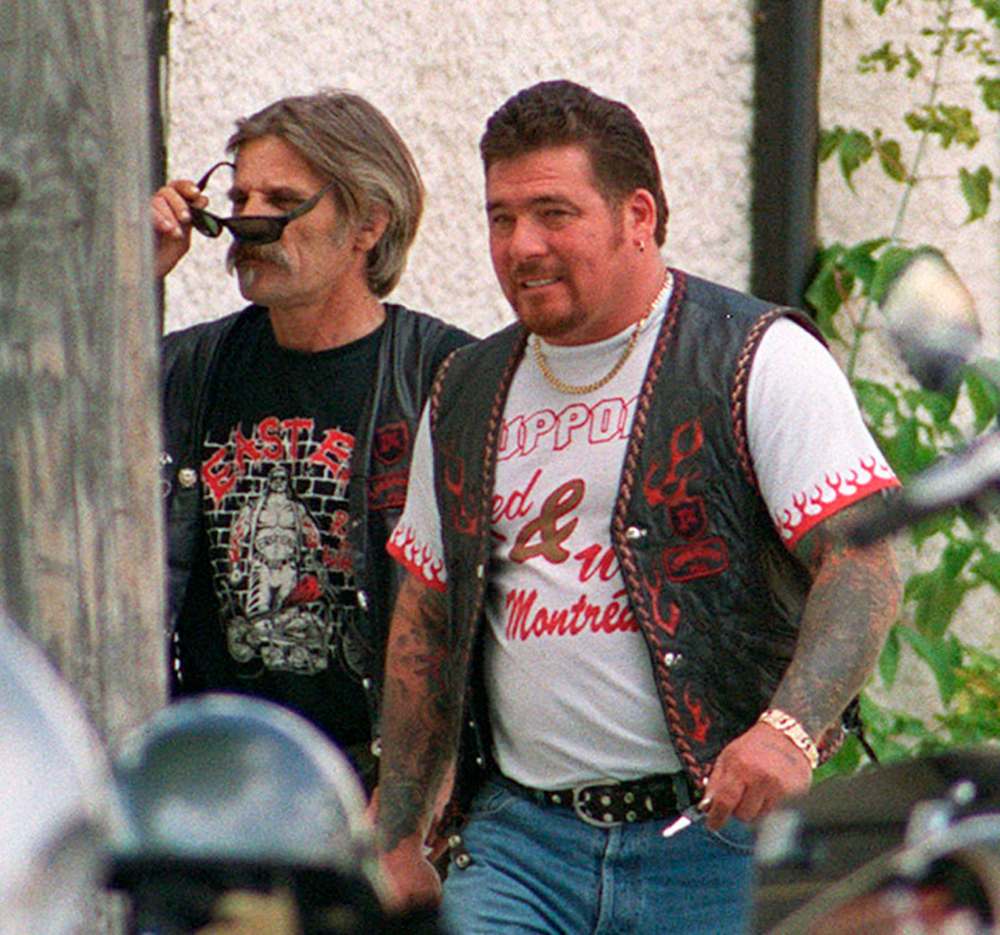Jury acquits Hells Angels member, associates accused of break-in to protect ‘brand’
Advertisement
Read this article for free:
or
Already have an account? Log in here »
To continue reading, please subscribe:
Monthly Digital Subscription
$0 for the first 4 weeks*
- Enjoy unlimited reading on winnipegfreepress.com
- Read the E-Edition, our digital replica newspaper
- Access News Break, our award-winning app
- Play interactive puzzles
*No charge for 4 weeks then price increases to the regular rate of $19.00 plus GST every four weeks. Offer available to new and qualified returning subscribers only. Cancel any time.
Monthly Digital Subscription
$4.75/week*
- Enjoy unlimited reading on winnipegfreepress.com
- Read the E-Edition, our digital replica newspaper
- Access News Break, our award-winning app
- Play interactive puzzles
*Billed as $19 plus GST every four weeks. Cancel any time.
To continue reading, please subscribe:
Add Free Press access to your Brandon Sun subscription for only an additional
$1 for the first 4 weeks*
*Your next subscription payment will increase by $1.00 and you will be charged $16.99 plus GST for four weeks. After four weeks, your payment will increase to $23.99 plus GST every four weeks.
Read unlimited articles for free today:
or
Already have an account? Log in here »
Hey there, time traveller!
This article was published 10/11/2021 (1492 days ago), so information in it may no longer be current.
A jury has acquitted three men tied to the Hells Angels of breaking into a Winnipeg man’s home, rejecting the prosecution’s argument they were acting to protect the outlaw motorcycle gang’s “brand.”
Jack Shore, 68, a full-patch member of the Winnipeg Hells Angels chapter since its inception in 2001, “prospect” Dylan Hutchinson, 24, and “hangaround” David Saunders, 47, stood trial charged with breaking and entering with intent to commit assault, and breaking and entering with intent to commit an indictable offence in support of a criminal organization. Shore was acquitted of an additional count of uttering threats.
Jurors deliberated roughly six hours before delivering their verdict early Tuesday evening.

Police arrested the three men after they went to an Inglewood Street home Jan. 5, 2019, wearing gang vests and shirts and allegedly tried to force their way inside.
Prosecutors argued the men donned their gang colours as an act of intimidation supporting the “power of the patch,” which holds that any sign of disrespect must be met with swift retribution. That act, prosecutors alleged, amounted to committing an offence in support of a criminal organization.
Jurors heard testimony a resident of the house, Richard Wonder, had been communicating with a woman over Facebook for sex when the woman, Shore’s then-girlfriend, told him to stop harassing her or she would have her boyfriend beat him up. Wonder and Shore then exchanged a series of heated text messages before Shore and his two co-accused drove up to the house two hours later.
Prosecutors argued one or more of the accused forced a front-porch door open ― constituting a break and enter ― before banging loudly on an inside door.
But to prove a break and enter occurred, jurors had to be satisfied the three accused did not have Wonder’s consent to be there, something Wonder, by his own testimony, clearly provided, defence lawyers argued.
Testifying last week, Wonder told jurors Shore, during an exchange on Facebook Messenger, warned him to stay away from his girlfriend or he would “tune (him) up.”
“I was like, ‘Bring it on, I’m not afraid,'” Wonder told court. “I didn’t know who he was or his friends. I didn’t care if they came down with weapons or guns. I had my baseball bat and my uncle’s sawed-off shotgun.”
Wonder’s words were clear in their intention, Shore’s lawyer Alex Steigerwald told jurors in a closing address Monday.
“He may not have expected anyone to show up, but he testified he was fine if they did,” he said. “An invitation was offered and accepted and Jack Shore went.”
Eric Wach, Hutchinson’s lawyer, described Wonder as a dangerous man with a history of violence, “the exact kind of person who would invite people to fight at his house.”
Defence lawyers said there was no evidence the porch door had been forced open or that the door was locked. Shore, they said, was the only one of the three accused to enter the porch, and after asking Wonder to come outside, left without trying to enter the house.
“They had no intention to enter that house,” Steigerwald said.
Earlier in the trial, prosecutors brought in a gang expert from Montreal who testified about the lengths the Hells Angels will go to protect and maintain their reputation for violence and the significant role their gang vests and death head and wings logo play in maintaining their “brand.”
“It’s not just a jacket,” Sgt. Alain Belleau of the Quebec Provincial Police told jurors. “Everywhere in the world where we have outlaw motorcycle clubs, people have died for those colours.… You cannot disrespect that. It’s a symbol of the organization.”
Around the world, the Hells Angels have taken measures both legal ― including court action, and illegal ― to prevent infringement on their trademarked logo, Belleau said. In one recent Ontario incident, police arrested two men after they plotted to burn a death head tattoo from the thigh of a man who was not a member of the Hells Angels.
“They are going to protect the logo at all costs,” he said. “It’s the foundation of the Hells Angels.”
dean.pritchard@freepress.mb.ca

Someone once said a journalist is just a reporter in a good suit. Dean Pritchard doesn’t own a good suit. But he knows a good lawsuit.
Our newsroom depends on a growing audience of readers to power our journalism. If you are not a paid reader, please consider becoming a subscriber.
Our newsroom depends on its audience of readers to power our journalism. Thank you for your support.



